Nicolai Medtner, who died in London on 13 November 1951, was one of the very last Romantic composer-pianists. Overshadowed by his contemporaries Scriabin and Rachmaninoff, Medtner made the piano the focus of his creative activity and frequently tempered a Russian spirit with music firmly rooted in the Western classical tradition. A scholar writes, “Fully developed almost from the time of his first published works, his musical idiom changed very little throughout his career, and his entire output is remarkably consistent in quality.”
Medtner Plays Medtner’s Fairy Tale, Op. 14, No. 2 “March of the Paladin”
The Idealist
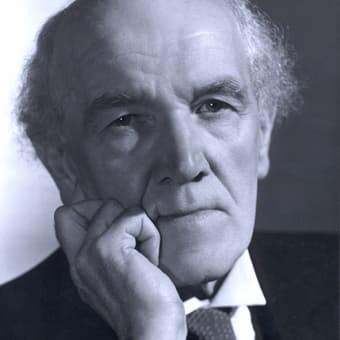
Nicolai Medtner
Medtner was a determined idealist who believed in the immutable laws of art. He was not concerned about making friends, as he consistently refused to play before Communist officials and mercilessly attacked both modernism and the “vacant pursuit of current musical fashions as aberrations.” He publicly voiced his disgust with modern music, and led the fight “against the demands of fashion, which, has affected a large part of the musical world.”
The connection between an artist’s soul and his art was of primary importance to Medtner, and “success itself gives me no satisfaction at all, despite its undoubted practical results–brilliant reviews and a certain sum of money. It gives me no satisfaction precisely because it is practical and not to do with ideals. But an artist can get satisfaction only from sympathy with, and celebration of, his ideals. As I see it, however insignificant an artist may be, for him his ideals are the most precious thing he has.”
Nicolai Medtner: Violin Sonata No. 1 in B minor, Op. 21 (Chloë Hanslip, violin; Igor Tchetuev, piano)
In London
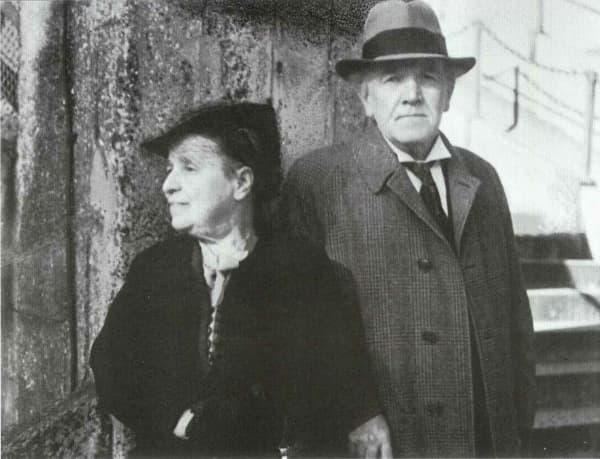
Anna and Nicolai Medtner
In 1935, the Medtners were invited to visit fellow Russian émigré Michael Barikevitsch in England. They moved into a house in Golders Green, London, their home for the next 16 years. Medtner described it as a fairy tale, as “apart from the English and the Russians, no one want to know me.” He published his artistic and personal creed in 1935, provocatively titled The Muse and the Fashion: Being a Defence of the Foundations of the Art of Music.
Sadly, the outbreak of war shattered the modest success Medtner was enjoying, and the payments from his German publisher disappeared. “He had not a single student and concerts had all been cancelled as well.” The Medtners essentially lived off of the generosity of friends, in particular the pianist Edna Iles, who had specialized in Medtner’s music for many years. Financial hardship aside, Medtner started to experience serious health concerns as he was diagnosed with coronary thrombosis. While writing his third and last piano concerto in Warwickshire in 1942, the composer suffered a serious heart attack.
Nicolai Medtner: Sonata Idyll, Op. 56
Maharaja Jayachamaraja Wadiyar
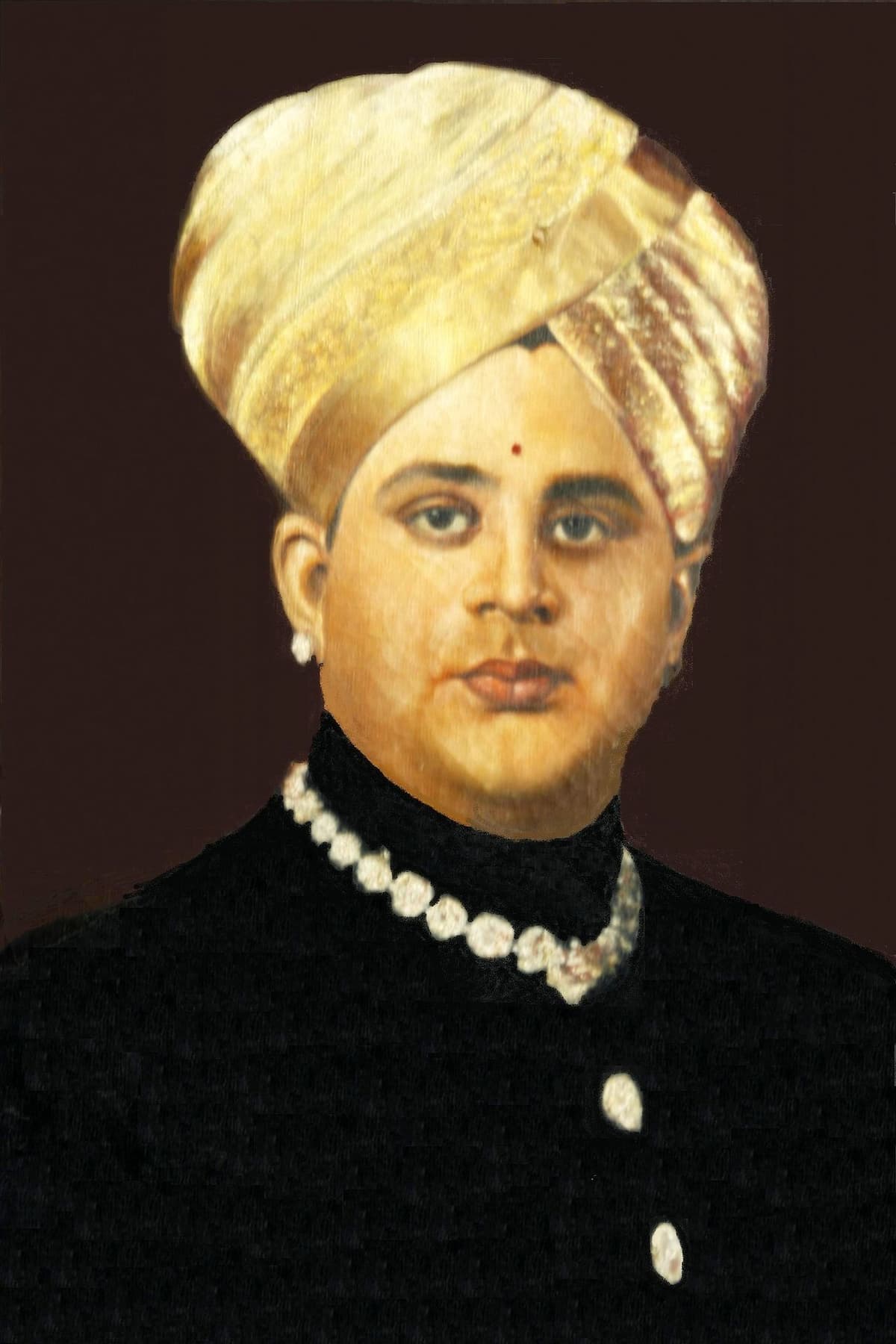
Maharaja Jayachamaraja Wadiyar
Medtner made a slow recovery, but in response to his constant dismissal of his music he wrote, “No man having lighted a candle conceals it under a bushel or puts it under a bed…Have I lighted a candle in my work? Yes, I believe I have lighted several small candles, and some of them were lighted by me for the glory of God and so, of course, under the bed is not the place for them… I have been dispossessed of my native land; here, abroad, modernism has been raging.”
Medtner, however, did find a ray of light in the person of the Maharaja of Mysore, Jayachamaraja Wadiyar, a man of letters and a connoisseur of both Western and Carnatic classical music. The Maharaja was a degree holder from Guildhall School of Music and studied to become a concert pianist. In addition to composing music, he patronised countless musicians in his court and became the first president of the Philharmonia Concert Society in 1948. During his presidency, he founded the Medtner Society in 1949, financing the recording of a substantial number of Medtner’s compositions.
Nicolai Medtner: Piano Concerto No. 3 in E minor, Op. 60 “Ballade” (Geoffrey Tozer, piano; London Philharmonic Orchestra; Neeme Järvi, cond.)
The Recordings
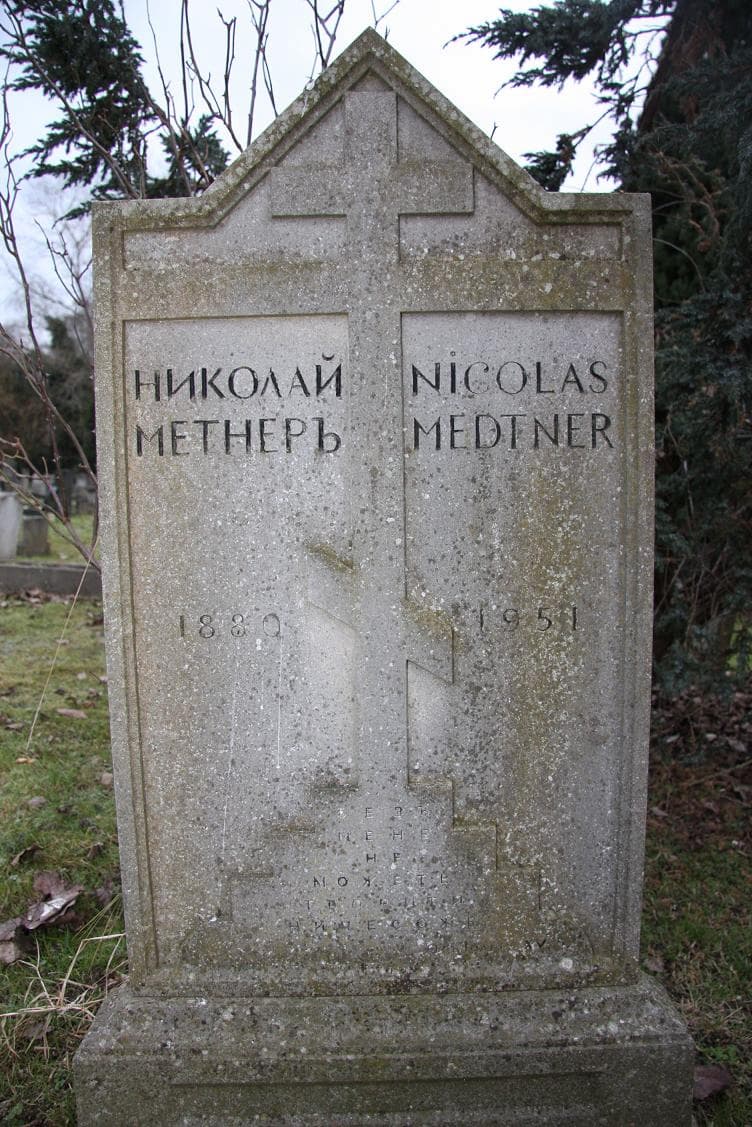
Gravestone of Nicolai Medtner
As the classical music producer Walter Legge reports, “The visit to Mysore was a fantastic experience… In the weeks I stayed there, the Maharajah agreed to paying for the recordings of the Medtner piano concertos, an album of his songs, and some of his chamber music; he also agreed to give me a subvention of 10,000 pounds a year for three years to enable me to put the Philharmonia Orchestra and the Philharmonia Concert Society on firm basis…”
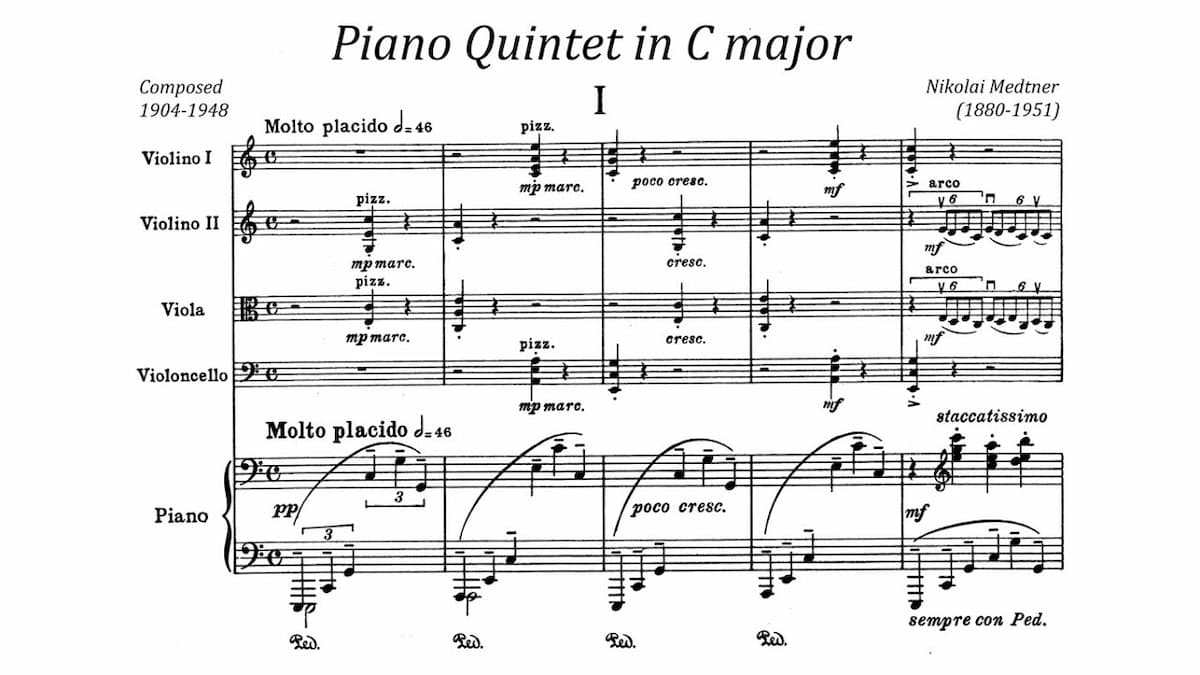
Nicolai Medtner: Piano Quintet
Over a period of four years, Medtner made gramophone recordings for EMI, featuring many of his most important works, including the three concertos, the Piano Quintet, the First Violin Sonata, and many songs and solo piano pieces. Medtner was able to complete one final work before his death, finishing his Piano Quintet, a work started in 1904. A scholar writes, “the score is covered with Bible passages, as well as paraphrases and quotes of many liturgical chants.” Medtner strongly believed that “all delays in the publishing of my records, the reprinting of my compositions are clear and deliberate spokes in the wheels of my war chariot against contemporary music and aesthetic consciousness.” Nicolai Medtner died, aged 71, in his North London home, and was buried at Hendon Cemetery.
For more of the best in classical music, sign up for our E-Newsletter
